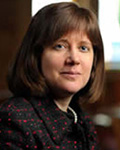2017
Deborah Tor
- Associate Professor
- University of Notre Dame

Abstract
The period in which the Great Seljuq Dynasty presided over the Middle East from Syria to Central Asia, from 1040-1194, was one of the most formative in Islamic history. Many of the final contours of the religious, political, and social institutions of classical Islamic society took shape during this time, with ramifications extending to the present. This project will be the first to trace many of its key developments: the appearance and concept of a universal Sultanate, which challenged the political authority of the caliphate and reshaped Islamic political theory; the flowering of Islamic chivalric ideals; the tethering of the Sunni religious clerics and mystics to the government; and the ongoing conflict between the Turco-Mongol nomads and Perso-Islamic settled society.

